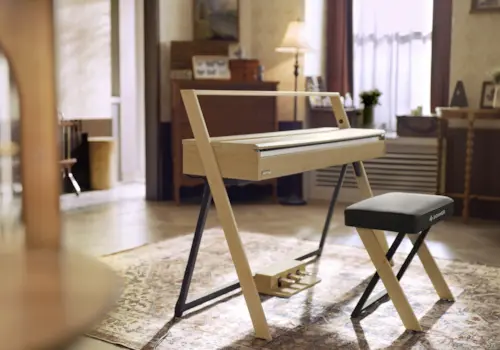Melanie Spanswick answers your questions every Tuesday.
Welcome to Q&A Tuesday with Melanie Spanswick! This is a brand-new series in which pianist, author, teacher and composer Melanie will tackle all your burning questions every Tuesday.
Our second question comes from Instagram. @ana.reigota asks:
"Is it best to play octaves with fingers 1 & 5 or 1 & 4? I always feel clumsy when playing with 1 & 5, and 1 & 4 seems to give better accuracy."
The question as to whether the fourth or fifth finger should be used when playing octaves has always caused some controversy. There are some schools of thought that believe only 1 and 5 should be used for octaves (especially in rapid passagework) as this keeps the hand in alignment, whereas using the fourth finger with the thumb turns it slightly, therefore causing possible tension.
I was taught to use 3, 4 and 5 at the top of octaves. And I don't have a particularly large hand. I had a Russian teacher who repeatedly demonstrated various ways of using the hand, that is, in different relaxed positions, so that it's possible, and comfortable, to play using changing fingers at the top of octaves. The most important factor is to remember to find relaxed hand positions when turning the hand to use the fourth finger at the top of the octave position. I give my students exercises, so they are able to practise keeping the octave position - that is, the hand open and out-stretched - whilst both the hand and wrist remain loose and flexible. As soon as there is any sign of tension, playing octaves cleanly can be uncomfortable.
If 1 and 5 are used alone, speed is generally compromised. This is definitely true when negotiating black keys. Sometimes it's also useful to use the third finger too; for example, when playing scalic octaves it can be necessary to move quickly, and having the option to join the tops of octaves using several fingers (the third, fourth and fifth) is very beneficial.
Join us next Tuesday for question 3.
Have you got a question you’d like to ask? Contact Ellie at [email protected].







